

Fulora Smart 3S Program
Smart 3S Program is to address the climate change issues in innovative non-conventional manner which gives Swachhata(Cleanliness) – Suraksha(Security) – Swasthya( Health). Swachhata – Suraksha – Swasthya are integrated part of our society which will provide great support to global climate change initiatives. All activities conducted in Fulora foundation are the part of ‘Fulora smart 3S’ program. The task is humongous but together we can serve to the large communities and make everyone comfortable in this Amrut period of INDIA.
We take pride in saying that we have aligned our program with the Sustainable Development goals. Our agenda intersects with many of the goals, with a particular focus on No poverty, Zero Hunger, Good Health & Wellbeing, Quality Education, Gender Equality, Clean Water and Sanitation, Affordable and Clean energy, sustainable cities and communities, life on land, Climate action, and Partnership for Goal. We invite all the stakeholders of Climate Change to support us and help us to mitigate the Climate Change initiatives. We hope that your CSR support will help us to make this project a grand success.
Most countries are currently pressing forward with electrification to cut carbon emissions significantly by 2030, as our new guide to EV and EV Charger incentives illustrate. Reducing your carbon footprint can also help you save money on your carbon tax. EV charging stations can generate additional cash on their own. You will be able to improve your earnings by installing EV chargers. For starters, clients who own electric vehicles are more inclined to stay at your store for longer periods to charge, which encourages them to buy more products or services. EV charging points can be a source of extra revenue in themselves. EVs require 30 minutes to 12 hours to charge on average, depending on the charger type – quick, rapid, or slow. You can offer consumers a quick-enough charging service while also enticing them to stay a little longer and buy that item they’ve been eyeing up for weeks if you choose a fast-charging system with an average charge duration of say an hour.
Renewable energy is not inherently more unreliable than fossil fuels, as is commonly assumed; in some circumstances, they have been demonstrated to improve grid resilience. Nonetheless, you can never rule out the possibility of a shortage. Indeed, irregular weather patterns and natural disasters are perhaps the greatest danger to grid resilience when it comes to renewables, as renewable energy sources are frequently physically climate-vulnerable. Natural weather risks may occur more frequently if global weather patterns become more irregular as a result of climate change, potentially becoming a bigger challenge in terms of grid resilience. EVs might thus act as a key emergency energy supply in the event of a power outage, potentially saving your company thousands of dollars in lost revenue.
Donate a EV Charger
Enable the Green infrastructure
Tax benefits under section 80G
Impact of Climate Change
Climate change is a reality that is affecting millions of people across the world, especially the most vulnerable, by increasing the frequency and virulence of the extreme meteorological phenomena that cause material damage and population displacement. People around the world are facing the consequences like heat waves, wildfires, flooding, etc. Since 1880, the average global temperature has increased by 0.85°C, sea levels have risen by 19cm and the Arctic has lost 1.07 million km2 of ice per decade, according to the Intergovernmental Panel on Climate Change (IPCC).


The main drivers of climate change are greenhouse gases (GHGs) such as carbon dioxide, methane and nitrous oxide that trap the sun’s energy in the atmosphere and prevent it from escaping into space, resulting in global warming. India’s electricity, Transport, Industry and agriculture sector are the dominate emitters of greenhouse gases (CO2, methane and nitrous oxide). A large amount of electricity is generated from fossil fuels, especially coal, which generated about three-quarters of the country’s electricity. The Indian agriculture sector is a major source of hazardous greenhouse gases (methane and nitrous oxide), which contribute to the greenhouse effect and climate change.
Severe impacts of climate change can be seen on various aspects including health. Experts consider climate change a major risk to human well-being both physically and mentally. Climate change threatens to decrease agricultural productivity, increase food insecurity, and challenge the livelihoods and survival of poor people.
The Center for Climate and Energy Solutions recently completed an examination of EV charging infrastructure finance and highlighted effective approaches for getting the private sector to fund more of it. EV charging stations are being installed by small and medium companies as a strategy to attract new and loyal customers.
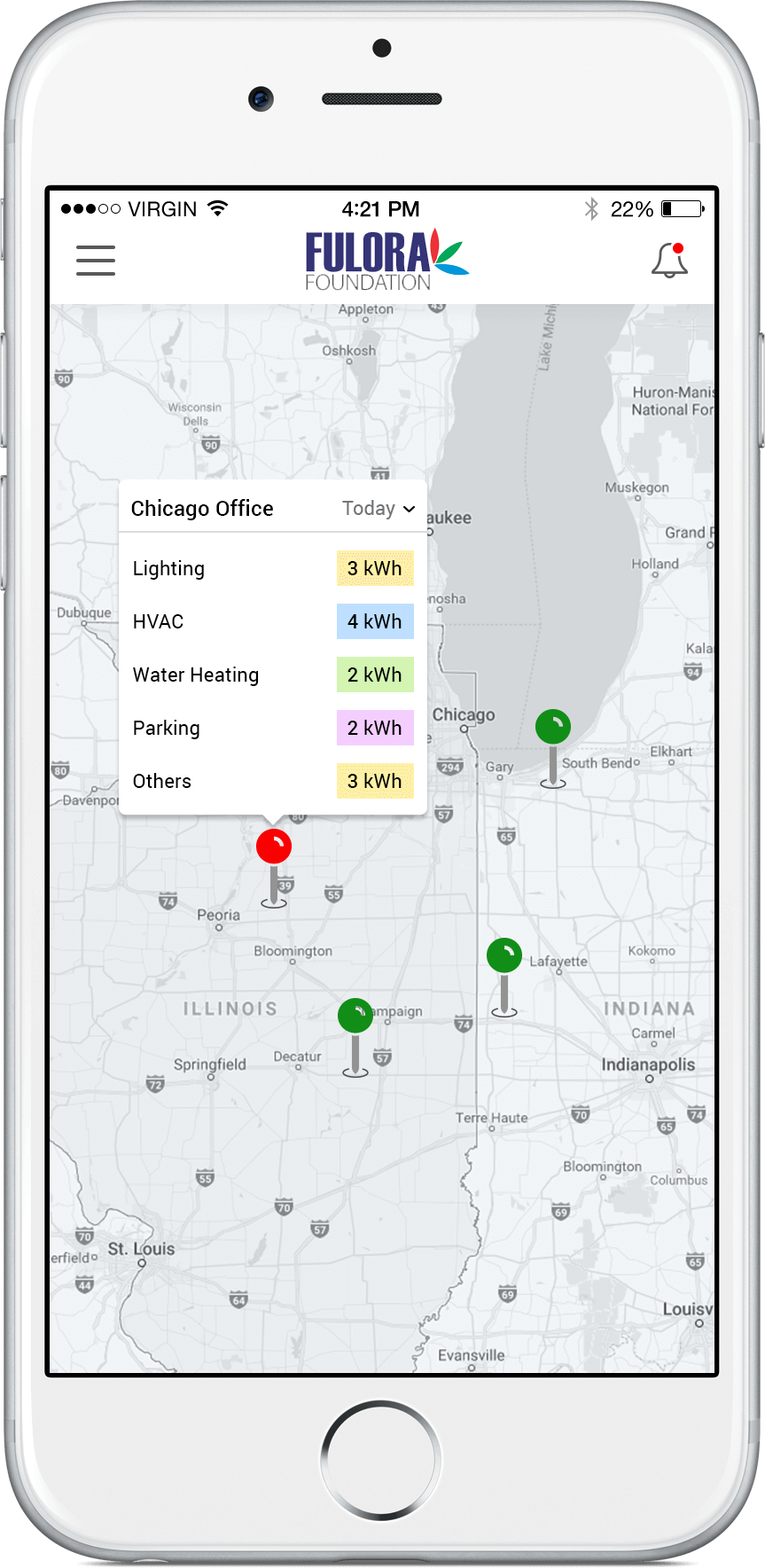

1. Zero Emission Green Taxis Initiative
Emissions from transport are still on the rise, representing 12% of India’s energy-related CO2 emissions in 2021. In 2018, 93% of passenger transport and 78% of freight transport went by road. Both sectors are still dominated by oil, and electric vehicles (EVs) make up only 0.4% of car sales.
We aim to reduce emissions of GHS in the transport sector by replacing the existing petrol, diesel and CNG vehicles with electric vehicles in India. We are developing solar power bank vehicles with inverter batteries that will be charged with the help of solar power farms that are already successfully generating electricity. Solar films on the roof of the vehicle will be connected to an additional battery that will be used to store energy for the driver’s various gadgets and taxi equipment as an additional source of energy.
- To increase capacity of ‘Low-income Taxi Driver communities’ to mitigate.
- To encourage and promote innovations in areas susceptible to climate change.
- To build partnerships between Drivers and Passengers, both private and public organizations to create new Eco system in Electric Vehicles.
- To contribute to sustainable development and the reduction of poverty.
- To leverage additional financing for climate action.
- Developing opportunities: climate-compatible economic policy perspectives as a driver for more ambitious NDCs
- Developing skills and ideas: establishing an educational landscape on the issue of climate action.
- Support for national development as a driver for investment in climate action, in particular in sustainable urban infrastructure.
- Climate-conscious energy transition in the transport sector with a focus on heating & cooling.
- Pandemic preparedness: natural protective barriers between humans and animals by expanding, linking and improving protected areas to reduce carbon foot print and support climate change.
- From pilot to application: expanding climate-conscious and biodiversity-friendly use of Solar supported Electric Vehicles.
- Biodiversity-friendly and climate-conscious financial systems in response to COVID-19.
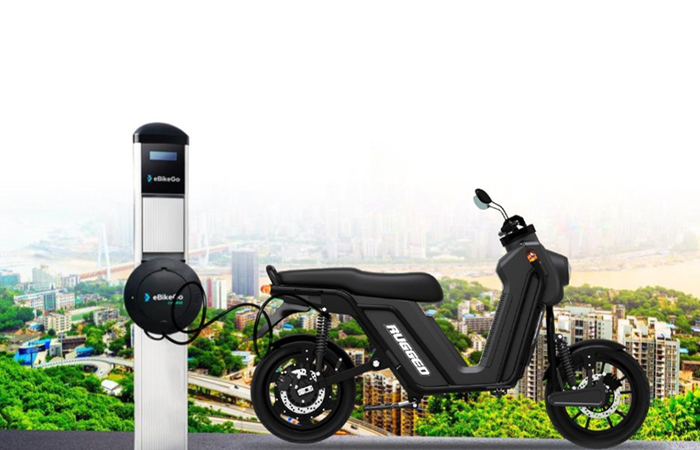
2. EV Charging Stations
There are two types of EV charging stations
- Mini charging stations
- Solar farms
Mini charging stations will have EV charging stations across India with commuter facilities. Whereas the Solar Farm will provide EV charging stations and farming under the shade of solar panels. We have created a 15-year systematic program that provides – electricity, EV charging stations, agriculture and livelihood opportunities to thousands of people.
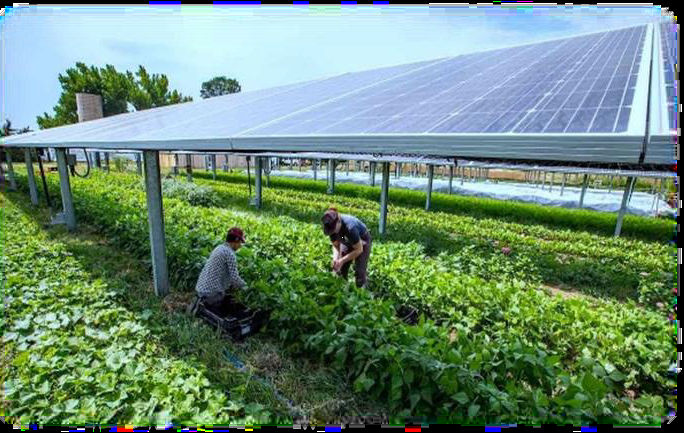
Solar Farm
Provide EV charging stations and farming under the shade of solar panels
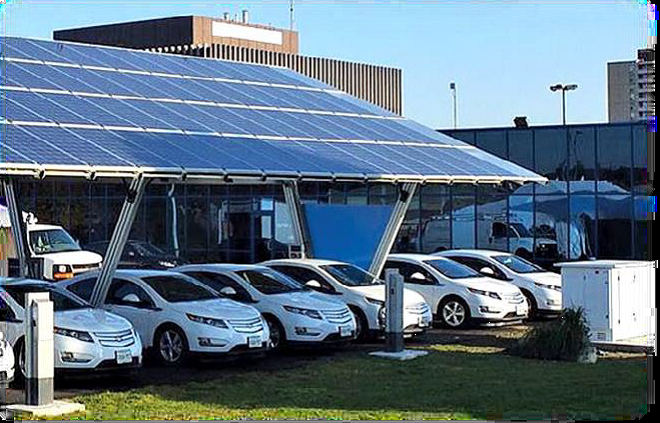
Mini Solar Farm
EV charging stations with commuter facilities
Flow chart of solar power generation and EV vehicle charging
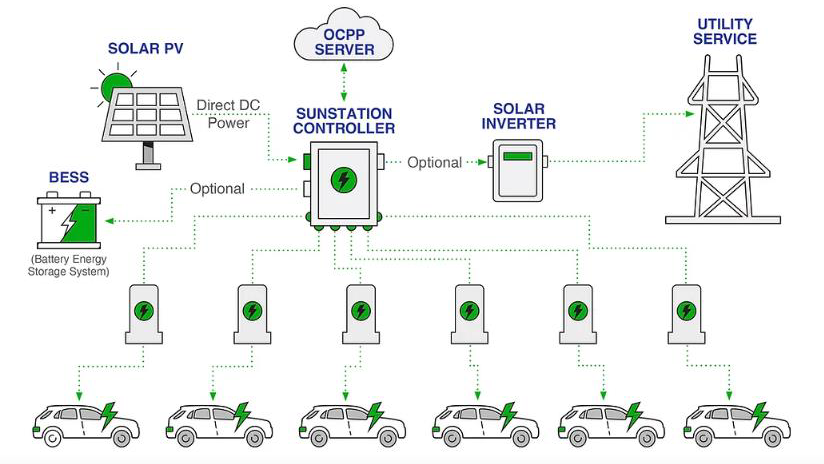
Additionally, farmers will earn double the income from the same land by renting land to install solar panels and farm under the panels. Cultivation under shade saves a lot of water and also increases the yield of certain fruits and vegetables. Furthermore, Solar panel installed on the “Barren land’’ or on the “Low-fertile Land” helps farmers to get the benefit through land leasing and employment opportunities through hydroponic plants run under solar panels. Farmers will form their ‘Self Help Groups’ to monitor the activities efficiently and on a long term basis.
Why is supporting a zero emission program worth it?
If your policy doesn’t include investing in EVs and reduced emission plans then you might want to rethink it. Even if you contribute a fraction to it, the potential benefits that you get are outstanding. These include,
- Reduced Carbon Footprint
- No noise and air pollution
- Low maintenance and Lower running costs
- Reflects that you welcome and accept changes
- Convenience of charging at home
- You are emerging as a socially conscious Group/company
- Healthy environment
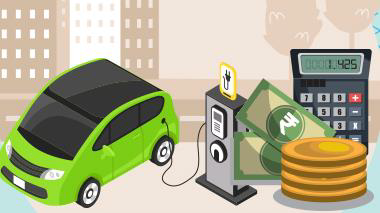
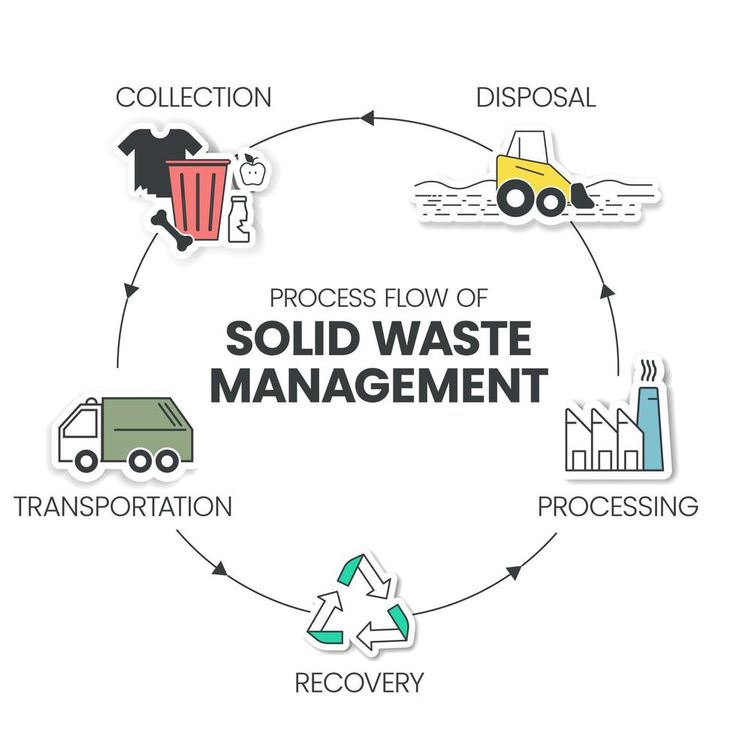
3. Solid waste Management
Apart from this, we are also working simultaneously on Solid Waste Management under the 1st S- Swasthya (Self Health & Social Health) initiative. We are creating these Public Charging Centers along with Solid waste management centers which will help us to sustain the project and make it economically viable. Solar Automatic Composting Machine, Treatment Capacity: 10-2000 kg. We are decentralizing the solid waste management program which will consist of the formation of paid volunteers, and handling of Self Help Groups with the help of LAM’s – local area management groups. Senior Citizens and homemakers will act as guardians of the project.

Adult Orphans, LAM’s – Local Area Management Groups and Senior Citizens in the form of self-help groups get meaningful jobs through solid waste management program. Each self-help group have 15 to 20 members.
Initially, a detailed survey conducted and rag pickers (waste worrier) encouraged to form self-help groups. They have given skill development training and professional management training to manage waste at source. We are create system to reduce the garbage at source itself. Waste handlers manage the collection and movement of household waste recycling. The biodegradable waste get composted and further used as fertilizer in the fields. And the non-biodegradable waste gets recycled and used to make materials, tools and farm implements for farmers for better agriculture and income.
Use of Artificial Inelegance and ML Technology to provide synchronized services and solutions
Installations of waste composters at Source in Maharashtra’s major places. Initially we start the work from Nagpur City & Nagpur District as well as for Mumbai MMR Region. Installation of separate Dust Bins for Dry, Wet waste & Metal/Glass waste.
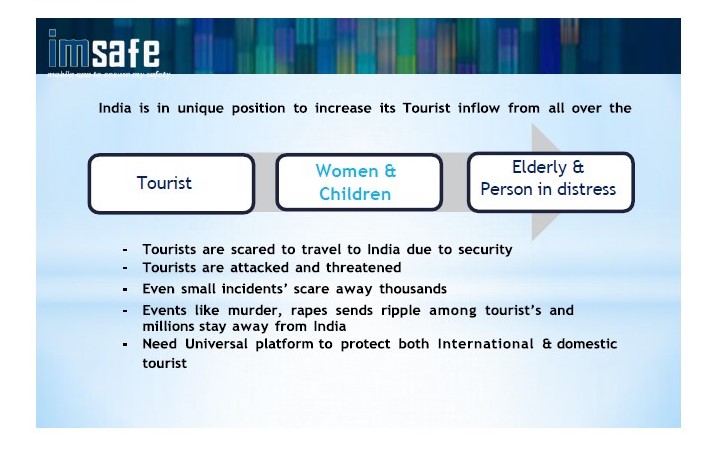
ImSafe
- We have tied up with ‘People plus Software’ who have designed I-safe program for safety and security of Senior Citizens, Children and women in distress to feel safe and travel freely in the society.
- Installations of safety devises for enhancing the strengths of Police Department.
- Registration of bio matric and Aadhar Card / Mobile Number of Taxi, Auto, Tempo & Truck Drivers, House Maid, Security Guards, Delivery boys, Construction workers. This will enhance capacity of Police department.
ImSafe

- We have tied up with ‘People plus Software’ who have designed I-safe program for safety and security of Senior Citizens, Children and women in distress to feel safe and travel freely in the society.
- Installations of safety devises for enhancing the strengths of Police Department.
- Registration of bio matric and Aadhar Card / Mobile Number of Taxi, Auto, Tempo & Truck Drivers, House Maid, Security Guards, Delivery boys, Construction workers. This will enhance capacity of Police department.
- Provide additional Safety to Senior Citizens, Tourists, Women and Children by using advance technology and humanly monitoring in real time manner.
- Provide Road Safety solutions and additional monitoring support at critical locations to create Accidents Free travel.
- Reduce abusing behaviors of miscreants which will reduce the Burdon of the Police Departments thus eliminate their stress levels and improve their health conditions.
- Create warehousing management program for food distribution system and supply of essential material at various places in Nagpur.
Create Tourism Taxi program for tourist visiting to our nation.


1. Digital Health Platform
Digital Health Platform for Public Health Aimed at Achieving SDG-3 Targets. 40% of India‘s population is mostly dependent on the public health systems for primary, secondary and tertiary care at government health facilities. The United Nations Sustainable Goal 3 Health & Well-Being (SDG 3) highlights the main goals for Health and wellbeing that need to be met in 5-10 years for the entire population.
Along with social health we intend to provide basic health support to poor people as well as orphans and street children. We have tied up with Ohum Healthcare for introducing their “PIKORUA DIGITAL HEALTH PLATFORM” to provide horizontal solutions to various applications to provide easy access to people and healthcare professionals. We intend to implement this solution to grass root villagers to gain access to advance healthcare facilities as well as various insurance programs smoothly.

Even today a lot of people don’t have access to basic healthcare facilities for which we intend to work systematically and bridge all the gaps by using Modern AI and ML Technologies made available to them. This initiative will help to eradicate the vacuum in the present healthcare system and to provide basic health care needs of the common man with continuous tracking of their treatment which avoids duplication of the tests. This initiative will also provide the employment opportunities for younger generation. Providing them marketing and management support to become self-sufficient and self-sustainable by use of AI and ML technologies. Fulora Foundation has been mandated to execute a 3 year Pilot in Mumbai MMR, Nagpur region in Maharashtra to meet the UN SDG Chapter 3 Health and wellbeing goals and to enable the citizen to access the entire spectrum of health and related services while improving the quality and efficiency of the public health system.
A three pronged approach of deploying a digital health platform, recruiting a large Self Help Group volunteers and building wellness and telemedicine centers is designed to meet the unique requirements of a community care model that enables district and state level health systems to meet Sustainable Goal 3 Health and Wellbeing goals.
Digital Health Platform
Wellness and telemedicine centers
Governance & SHG Workforce
A digital health platform delivers information, drives transactions, enforces protocols and best practices and expands reach to cover all citizens with little additional investment in infrastructure, management and operations.
Telemedicine, with its very low cost and rapid deployment, and Urgent care, driven by best practices and a cashless payless service model, together drive social change and trust to assure universal access and to deliver optimal preventive care and promote healthy lifestyles.
A large team of SHG workers and a strong governance re-enforces protocols and best practices and drives change to meet or exceed the SDG goals ahead of time.
Such a model drives care at the patient homes, increases access, builds trust, reduces out of pocket costs, saves time and most importantly improves health. The Citizen has hassle free, cashless payless access to free integrated healthcare for his/her urgent, primary, wellness, chronic and palliative care.
Built upon global best practices and proven technology, The State of Rajasthan has embarked on just such a journey 5 years ago and today the platform has boarded 930 hospitals and clinics, managed 127 Mn appointments and 6.7 Mn admissions. The system maintains ONE CITIZEN ONE RECORD, revolutionizes the payer provider patient care delivery model and brings transparency, reach and 24/7 access to all citizens. It will soon cover over 30 Mn citizens.
Objective of health care program includes.
- Provide additional health assessment support to marginalized poor citizens and villagers as well as abundant Senior Citizens, Women and Children by using advance technology and humanly monitoring process.
- Also provide single technology platform to monitor various health Apps thus reducing the pressure of Asha Workers and Medical Staff of filling of data in various Apps.

Public DC Chargers having output voltages of 48V / 72V, power outputs of 10 kW / 15 kW, and a maximum current of 200A. These will be known as Level 1 DC Chargers, according to the Bharat EV specifications. Public DC chargers with power outputs of 30 kW / 150 kW and output voltages up to 1000V.
There are already 427 electric car charging stations constructed around the country, with 77 of them positioned on major national highways and 350 spread between seven states and two union territories (Delhi and Chandigarh).
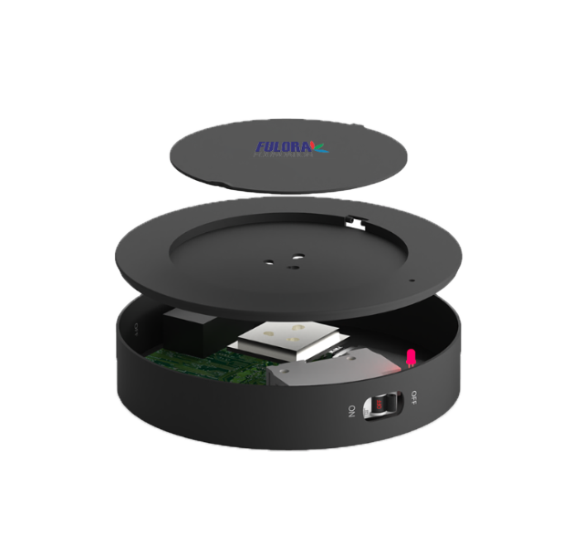
- Reduction in repetition of multiple health checkup tests by making them available through use of AI&ML Technology by managing Electronic Health Records.
- Provide real time virtual doctors and tale medicine facility. Appointment of Self Help Groups & VLC’s to coordinate working with Asha Workers and Health Workers.
- Linking of Gov. Hospital facilities with Wellness centers, Local Body health centers and Private Hospitals which will help to increase the use of preventive Health program and reduce the fatalities.
2.Digital Immunization Records (DIR)
This program exists because millions of young children in India are missing out on immunization, and are at risk of disease and deadly outbreaks. Despite the number of immunization programs launched by the government of India, mothers and new-born die tragically each year many of these deaths result from vaccine-preventable diseases. In India, nearly one million children die before their fifth birthday from a vaccine-preventable disease. Half of the worlds under vaccinated children are in India.

What People Think About Us
Outstanding contribution from the most devoted members of the NGO sector. I personally thank you and pray to God the Saviour for your progress and success. May God provide you the strength to support the entire child who still requires your help and concern.”
“Volunteering with Fulora has been one of the most rewarding learning experiences of my life. It taught me how essential it is to be connected to your community”.
As a fulora volunteer, I'm humbled, joyful, and heroic. It’s a location that encourages me to be a light for poor children while also allowing me to shine brighter as a person.
Here, I grasped the full meaning of the term "selflessness “ They never treat you like a volunteer at Fulora; instead, they treat you like a member of the family!.
“While it is much easier to turn one's eyes to what is going on around us, I believe it is my responsibility to provide a helping hand to others”.
Stay With Us
Our Related Campaigns
Our Related Campaigns
Fulora Foundation is registered as Public Charitable Trust vide Registration No. E-16342 (Mumbai) under Mumbai Public Trust Act 1950. We are a 12A registered with section 80(G) status of the income tax act and we are eligible to receive foreign funding via the Foreign Contribution (Regulation) Act.
Fulora follows all financial regulations set forth for non-profits by the Government of India, and is audited annually.
Contacts
Copyright © 2021 Fulora Foundations. All Rights Reserved.
